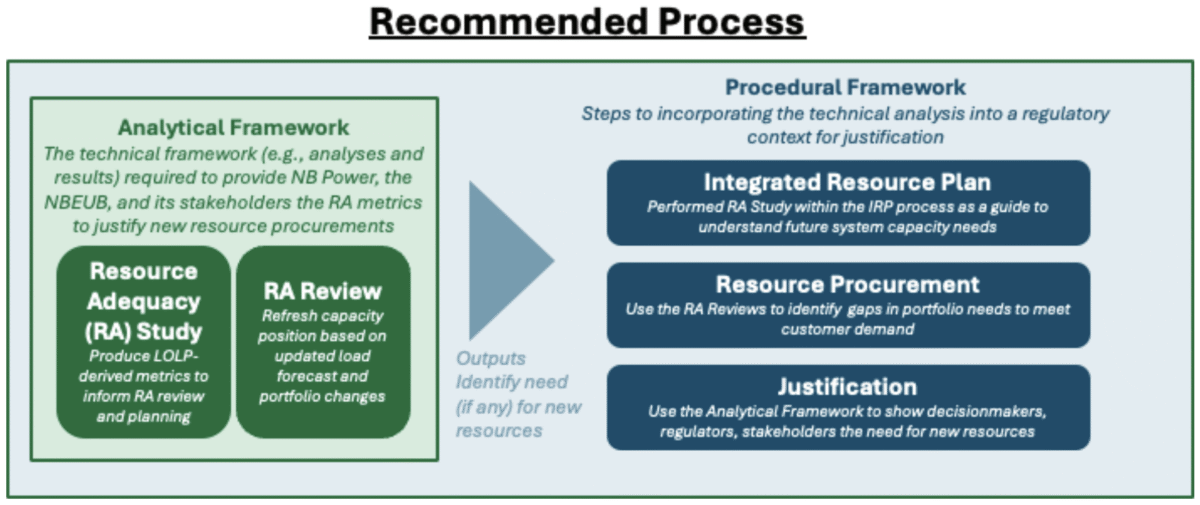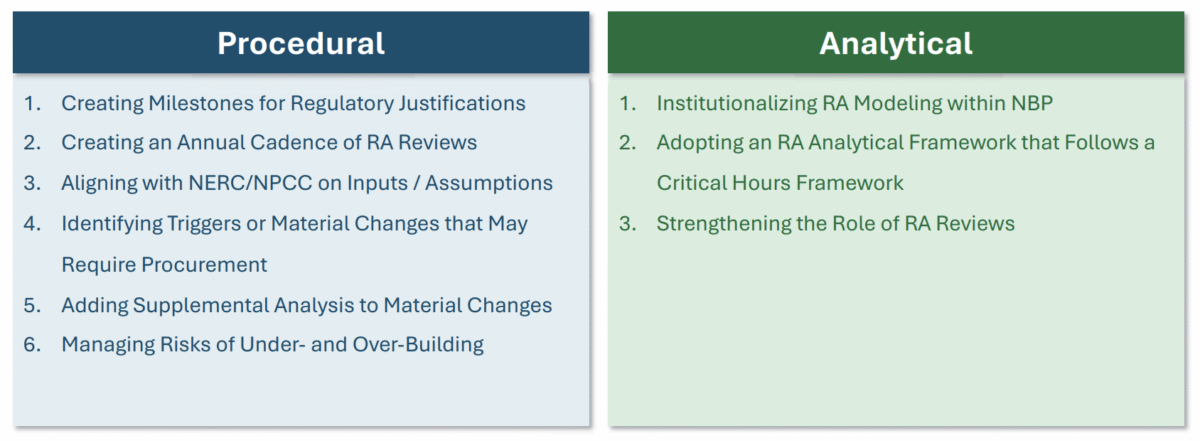
New Brunswick Power (NB Power) is entering a period of heightened electricity reliability challenges. With accelerating load growth, aging infrastructure, and resource retirements, NB Power is preparing to add new generation resources for the first time in decades. To address these concerns, the utility announced the Renewables Integration and Grid Security (RIGS) project, the first new firm capacity procurement in over two decades. While the RIGS project will address near-term capacity needs, NB Power recognizes its need for a robust planning and decision-making framework to guide its new resource decisions over time. To support that effort, NB Power retained E3 to develop a new Resource Adequacy Framework that strengthens how NB Power determines and demonstrates the need for future resources, providing a more transparent, repeatable process to guide decisions like RIGS and those that follow.
The framework is outlined in a new E3 report, Toward a Future-Ready Resource Adequacy Framework for New Brunswick Power, that gives the utility a clear process for deciding when to add new resources and how to demonstrate that need to stakeholders. A central idea is that reliability planning should be both analytical and procedural; resource adequacy is not just a technical modeling exercise, it requires a process that links analysis to planning and procurement decisions. The framework offers a continuous loop of review and decision-making: every three years, NB Power would conduct a full resource adequacy assessment in coordination with its ongoing planning and procurement cycles, using consistent assumptions across all studies. Between those cycles, annual reviews would update the analysis to reflect any important new information, such as changing load forecasts, plant retirements, or the effects of extreme weather. If those reviews identify material changes, defined triggers would prompt supplemental analysis or an off-cycle update to reassess system reliability and capacity needs. That cadence gives NB Power the ability to act on new risks or opportunities quickly.


The framework focuses on how NB Power makes resource decisions, not on prescribing which technologies to pursue. As the province transitions toward cleaner electricity, the mix of future resources will depend on cost, technology readiness, and reliability needs at the time decisions are made. The framework ensures that those decisions are made using consistent methods and clear documentation.
A major theme throughout the report is proactive planning. E3 emphasizes that the pace of change in the electricity sector means NB Power can’t rely on static long-term forecasts. The framework builds in structured consideration of risks such as climate-driven demand changes, supply interruptions, and economic uncertainty, and also recommends evaluating risks of under- or over-building and may sometimes justify early or larger builds as prudent risk management. By evaluating a range of possible futures, the utility can better understand how uncertainty affects reliability and cost for customers.
The report ends with a practical roadmap: setting up the annual review process, syncing inputs and timelines with NPCC and NERC assessments, and phasing actions by near-, medium-, and long-term priorities. E3 recommends that NB Power make the framework a living process that evolves with the province’s electricity system. As conditions shift, it gives NB Power a structured way to revisit assumptions, adjust course, and keep reliability and affordability at the center of its decisions.
How to access the full filing:
NB Power’s RIGS application and supporting materials are available on the New Brunswick Energy and Utilities Board website under proceeding EL-002-2025. You can browse all related exhibits and affidavits here.
E3’s report appears in the filing as Appendix G and can be accessed in the link above or directly here.
This report was prepared by Arne Olson, Jun Zhang, Adrian Au, Ruoshui Li, and Alexandra Gonzalez. To learn more about E3’s work in Resource Adequacy, please contact arne@ethree.com.


